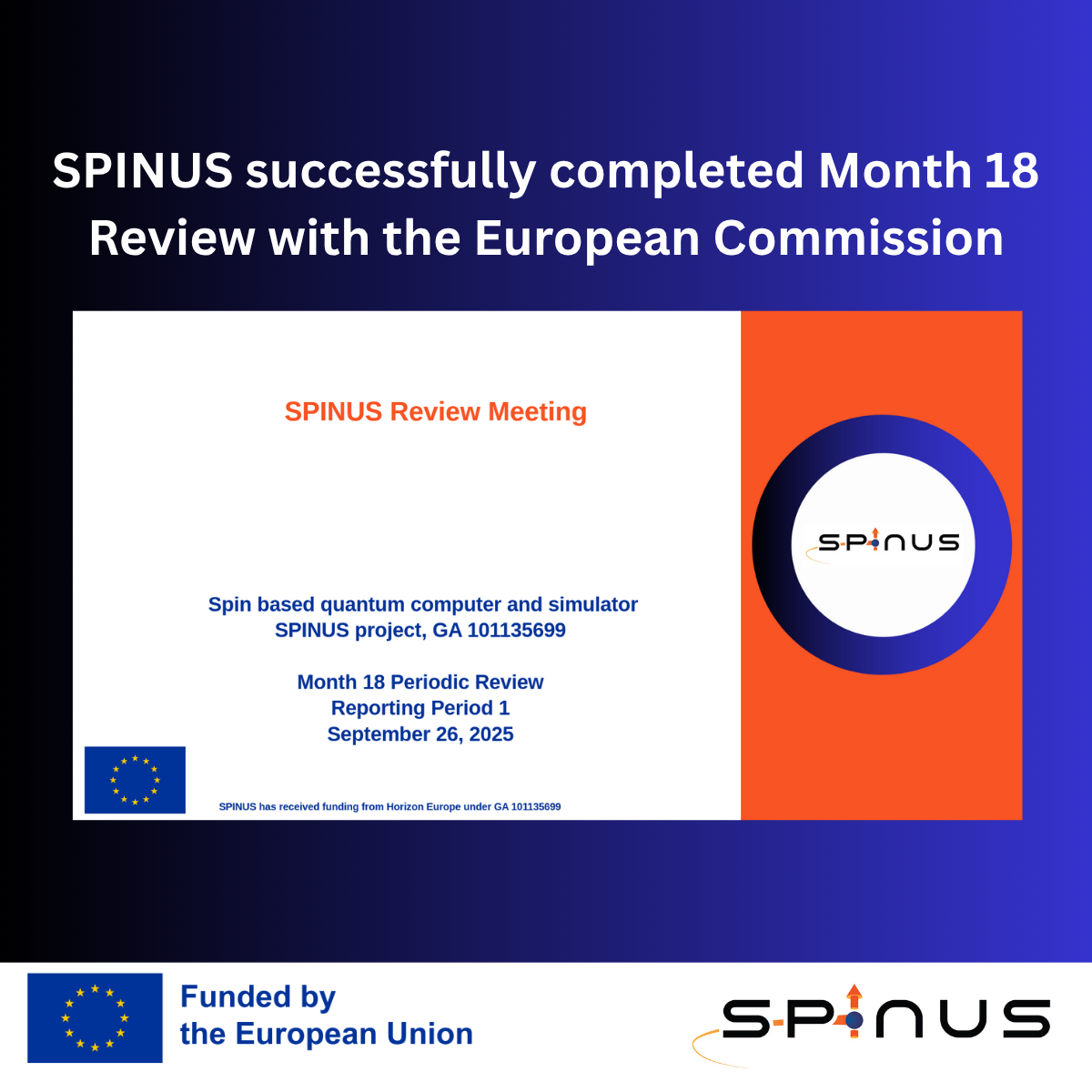
SPINUS passes its first European Commission Review with colour centres and flying colours
September 26, 2025On September 26, 2025, SPINUS project successfully concluded its first Review Meeting with the European Commission, marking a key implementation milestone at Month 18. The meeting, held online via Microsoft Teams, brought together all consortium partners, the Project Officer Dr. Alessio Maugeri (DG CNECT), and three distinguished external expert Reviewers:
- Dr. Nicole Fabbri (Consiglio Nazionale delle Ricerche)
- Dr. Florian Daniel Kaiser (Luxembourg Institute of Science and Technology)
- Prof. Domenico Zito (University College Cork, Aarhus University, AGH University of Science and Technology)
The Reviewers acknowledged the project’s solid scientific achievements, effective coordination, and clear alignment with its ambitions to develop advanced experimental platforms for quantum simulation and computation based on diamond and SiC materials. Reviewers commended the professional project management, the breadth of experimental and theoretical work, and the excellent integration of partners across Europe contributing to the EU’s strategic goals in quantum technologies.
Constructive feedback from the reviewers encouraged stronger interaction between theoretical and experimental teams and a refined exploitation strategy, particularly regarding the Innovation Radar and intellectual property aspects. The consortium welcomed these recommendations and committed to implementing them systematically in the coming period to strengthen cross-WP collaboration and the project’s innovation impact.
Highlights per Work Package:
- WP1 Tools for initialization, readout and control: Significant progress on control protocols and spin readout techniques, successfully integrating optimized PulsePol sequences and demonstrating experimental validations across multiple setups.
- WP2 Materials development: Key advancements in material synthesis and characterization for NV and SiC colour centres, with strong cross-platform knowledge transfer and standardization of measurement approaches.
- WP3 Quantum simulation platforms: Development of robust, tunable quantum simulators with promising experimental outcomes supporting disordered systems and time-crystal studies.
- WP4 Quantum computation platform: Advancements in device integration and gate fidelity benchmarking, achieving competitive performance and validating methods through experimental measurements.
- WP5 Quantum Advantage: Closer alignment between theory and experiment, with early steps toward algorithmic and benchmarking standardization.
- WP6 Communication, dissemination and exploitation: Strengthened visibility of SPINUS results paired with a first roadmap for IP management and exploitation.
- WP7 Project management: Acknowledged by reviewers for its transparent, efficient, and well-coordinated execution.
The consortium expressed its enthusiasm for having successfully passed this first major milestone and reaffirmed its commitment to maintaining a steady implementation pace, enhancing collaboration among partners, and strengthening engagement with the broader European quantum community. Moving forward, SPINUS aims to intensify cooperation across theoretical and experimental teams and continue delivering impactful results in support of the European Commission’s Quantum Technologies agenda.
Stay tuned for the next 18 months of solid (state) work!